Apple’s iPhone X: is it worth it?
The tech giant is hoping that superfans – and the super-rich – will snap up its brand new all-glass iPhone with face ID
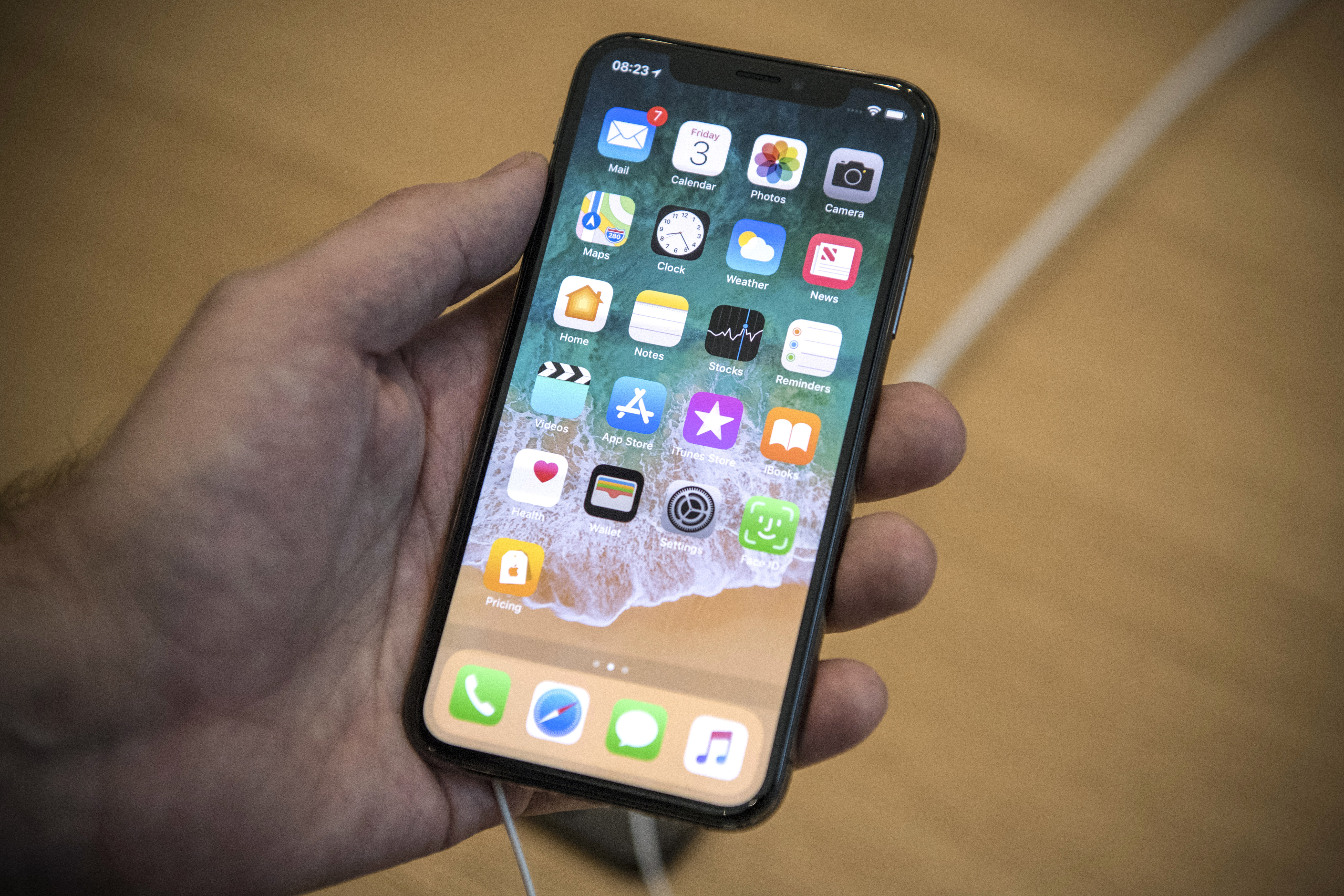
A free daily email with the biggest news stories of the day – and the best features from TheWeek.com
You are now subscribed
Your newsletter sign-up was successful
iPhone 8: Apple hits 'biggest bottleneck' with Touch ID fitting
13 April
Tech giant reportedly 'unwilling' to seek outside suppliers for security scanners
Apple's next iPhone is expected to be unveiled in less than six months' time, but the Cupertino-based company appears to have encountered production issues over fitting its Touch ID scanner.
The Week
Escape your echo chamber. Get the facts behind the news, plus analysis from multiple perspectives.

Sign up for The Week's Free Newsletters
From our morning news briefing to a weekly Good News Newsletter, get the best of The Week delivered directly to your inbox.
From our morning news briefing to a weekly Good News Newsletter, get the best of The Week delivered directly to your inbox.
Sources told MacRumors that the tech giant's "biggest bottleneck" is housing the Touch ID security system underneath the rumoured 5.8ins display on the iPhone 8.
"The current yield of Apple's in-house AuthenTec-based fingerprint sensor solution is low", the website says, but Apple is said to be "unwilling" to seek suppliers outside of the company for the scanners.
The company is rumoured to be mulling three alternative solutions if it cannot solve its issues, with sources saying the iPhone 8 could have a fingerprint scanner located on the back panel, similar to Samsung's new Galaxy S8.
It is also considering delaying the smartphone's retail release, adds MacRumors, as well as relying entirely on the facial recognition and iris scanner which are reportedly debuting on the device.
A free daily email with the biggest news stories of the day – and the best features from TheWeek.com
The latest addition to Apple's handset line-up is expected to be radical departure from the iterative approach of the iPhone 7. DigiTimes reports it will feature a stainless steel chassis and two glass panels instead of the current aluminium body.
TechRadar says that Apple could also launch a 7S and 7S Plus this year, saying the firm "tends to be quite consistent" with launching a new handset on a yearly basis and to expect it to be released "almost exactly a year after the iPhone 7".
A launch date for the next iPhone has yet to be announced, but Apple often unveils its latest mobile products between September and October.
iPhone 8: Apple orders 70 million OLED displays
4 April
Rumours are coming in thick and fast in the run-up to Apple's next iPhone launch - and it looks more probable that it will house an OLED display.
Sources claim the tech company has placed an order for 70 million organic light-emitting diode displays from Samsung, Nikkei reports.
One told the website: "Samsung is preparing to churn out as many as 95 million for Apple in 2017 in case demand exceeds expectations."
The source added: "It is also possible that some of these 70 million handsets will not be shipped to customers this year and be carried over to next year depending on demand."
Apple currently uses LCDs (liquid crystal display) in its iPhones, but rumours have long said that this will change for its next smartphone.
A report from the Korea Herald claims the iPhone 8 will be fitted with a curved OLED display similar to the new Samsung Galaxy S8 and featuring "new sensing technology" to allow users to access more options by touching the sides of the phone.
However, introducing OLED displays could cost customers more due to their higher production costs. Forbes says the LED units in the current iPhone 7 and 7 Plus cost around $9 (£7), but it expects the OLED displays to cost $15 (£12).
The iPhone 8 is expected to unveiled in the fourth quarter of this year, adds the site, meaning it would miss the company's traditional September smartphone launch forum.
iPhone 8 could cost more to pay for OLED display
16 March
Apple's decision to give the iPhone 8 an OLED display will make the new smartphone the most expensive version ever made, predicts Digitimes.
According to the website, 3D Touch module-makers will demand 60 per cent more for supplying modules that work with OLED, or organic light-emitting diode.
The new displays feature an "organic" carbon film that sits inside the panel before the glass screen, giving a superior contrast ratio and better quality colour display than LCD screens.
A source says supplying 3D Touch modules for use in the new iPhone 8 "involves a more complicated manufacturing process and adoption of thin film-based touch sensors".
Suppliers such as TPK could see overall gross margins rise from 11-12 per cent to 20-22 per cent, but the news is less rosy for consumers. Forbes speculates that "Apple's famously high profit margins mean is it less likely to swallow this hit than pass it on to its famously loyal customers".
The iPhone 8 is expected to be released in the final quarter of this year, meaning it would miss its traditional September launch. Nevertheless, it is set to "fly off the shelves", says Forbes, which adds that the delayed launch allows the public to "save up" for the phone, which is expected to cost $1,000 (£816) in the US.
In the meantime, Apple is expected to unveil an iPhone 7S and iPhone 7S Plus, which Forbes says would include "incremental upgrades on the iPhone 7 and iPhone 7 Plus and retain the same familiar aluminium chassis and LCD displays".
Apple will adopt a 'longer' OLED panel on its tenth anniversary smartphone, sources say
13 March
Apple's latest addition to the iPhone has long been speculated to have undergone a complete redesign to mark the tenth anniversary of the company's iconic smartphone.
Among the rumoured additions to the device, which many analysts refer to as the iPhone 8, is a curved OLED (organic light emitting diode) display with curved edges similar to the screen on Samsung's Galaxy S7 Edge.
However, sources told MacRumors that Apple's "special iPhone model" will "adopt a flat implementation of OLED design" corresponding with "the current 2.5D design" of the iPhone 7.
They add that flat OLED display could feature a "longer aspect ratio design" to utilise the space left by the omission of a physical home button.
Full-panel displays are set to become "the trend of 2017" - a similar style is expected on the Samsung Galaxy S8.
Earlier reports from the Korea Herald suggested the iPhone 8 would house a plastic curved OLED display with "new sensing technology", allowing users to touch the sides of the device for more options.
Meanwhile, 9to5Mac claims sources expect the demand for the Galaxy S8 will be weaker than for the iPhone 8 as it lacks "sufficiently attractive selling points".
With the next iPhone set to be a real game-changer, with an all-glass display and wireless charging tipped to appear, they add Apple's phone could be a "bigger draw for customers" than the iPhone 7 was when it released last year.
There's no word on when Apple will unveil its new smartphone, but the company often announces its latest handsets during a keynote in the autumn.
iPhone 8: 3D facial scanner may replace Touch ID
17 February
An iPhone 8 with no Touch ID scanner is back on the agenda, according to a new report that appears to bolster the existing theory that Apple will introduce a facial recognition system on its next smartphone.
Sources told Macromeres that a front-facing 3D facial scanner will replace the existing Touch ID, which will reportedly by axed to make way for an edge-to-edge OLED (organic light emitting diode) display.
Facial recognition could add a further $10 to $15 (£8 to £12) per unit, sources say, which could lead to an extra $100 (£81) on the price when the new glass casing and OLED display are factored in.
It will also "alleviate customer frustration when Touch ID does not work under wet conditions" and could be more secure than the existing fingerprint scanner, continues the report.
The rumours bolster the findings of a research paper posted on MacRumors last month which suggested the new iPhone will feature a two-step verification system incorporating facial recognition.
According to those sources, the advanced "biometric identification system" will require a bespoke display to be manufactured to house the technology, with Touch ID located underneath the screen.
Meanwhile, reports indicate the iPhone 8 will be more resistant to water. The Korea Herald claims Apple's next smartphone will receive a weatherproof rating of IP68, allowing the handset to be submerged in three feet of water for up to 30 minutes.
iPhone 8: Headphone adapter could be sold separately
13 February
Apple may not include its Lightning-to-headphone jack adapter as a free accessory on its upcoming iPhone 8, forcing customers to buy it separately, reports say.
At the moment, the adapter comes packaged with the iPhone 7, along with a set of EarPods and a wired charger.
But MacOtakara reports sources saying Apple is "finished with putting the headphone jack adapter" in with the smartphone and will "continue to sell the USB-C cable separately".
Such a move would likely be unpopular with fans, many of whom are already unhappy with the Cupertino company's decision to remove the headphone port on its most recent smartphone, the iPhone 7.
Users of Apple's latest MacBooks and MacBook Pros were also disappointed that they had to buy adapters to convert the Lightning port to USB-C, which is the laptops' primary form of connectivity.
While there may be fewer adapters bundled in with the iPhone 8, sources have revealed that the new handset will support both wired and wireless charging, the site adds.
There's no word on whether a wireless charging hub will be bundled in with the handset, but Apple is expected to supply customers with a regular wired charger in the box.
MacOtakara's report is consistent with rumours claiming the iPhone 8 will feature a complete design overhaul to accommodate wireless charging technology. Reports also suggest the handset will come with a glass body reinforced with a stainless steel frame.
A release date has not yet been confirmed for the smartphone, although it could appear during Apple's device release window that often falls between September and October.
iPhone 8: What we know so far about Apple's next handset
7 February
-
 Switzerland could vote to cap its population
Switzerland could vote to cap its populationUnder the Radar Swiss People’s Party proposes referendum on radical anti-immigration measure to limit residents to 10 million
-
 Political cartoons for February 15
Political cartoons for February 15Cartoons Sunday's political cartoons include political ventriloquism, Europe in the middle, and more
-
 The broken water companies failing England and Wales
The broken water companies failing England and WalesExplainer With rising bills, deteriorating river health and a lack of investment, regulators face an uphill battle to stabilise the industry
-
 Will AI kill the smartphone?
Will AI kill the smartphone?In The Spotlight OpenAI and Meta want to unseat the ‘Lennon and McCartney’ of the gadget era
-
 Is Apple’s Tim Cook about to retire?
Is Apple’s Tim Cook about to retire?Today's Big Question A departure could come early next year
-
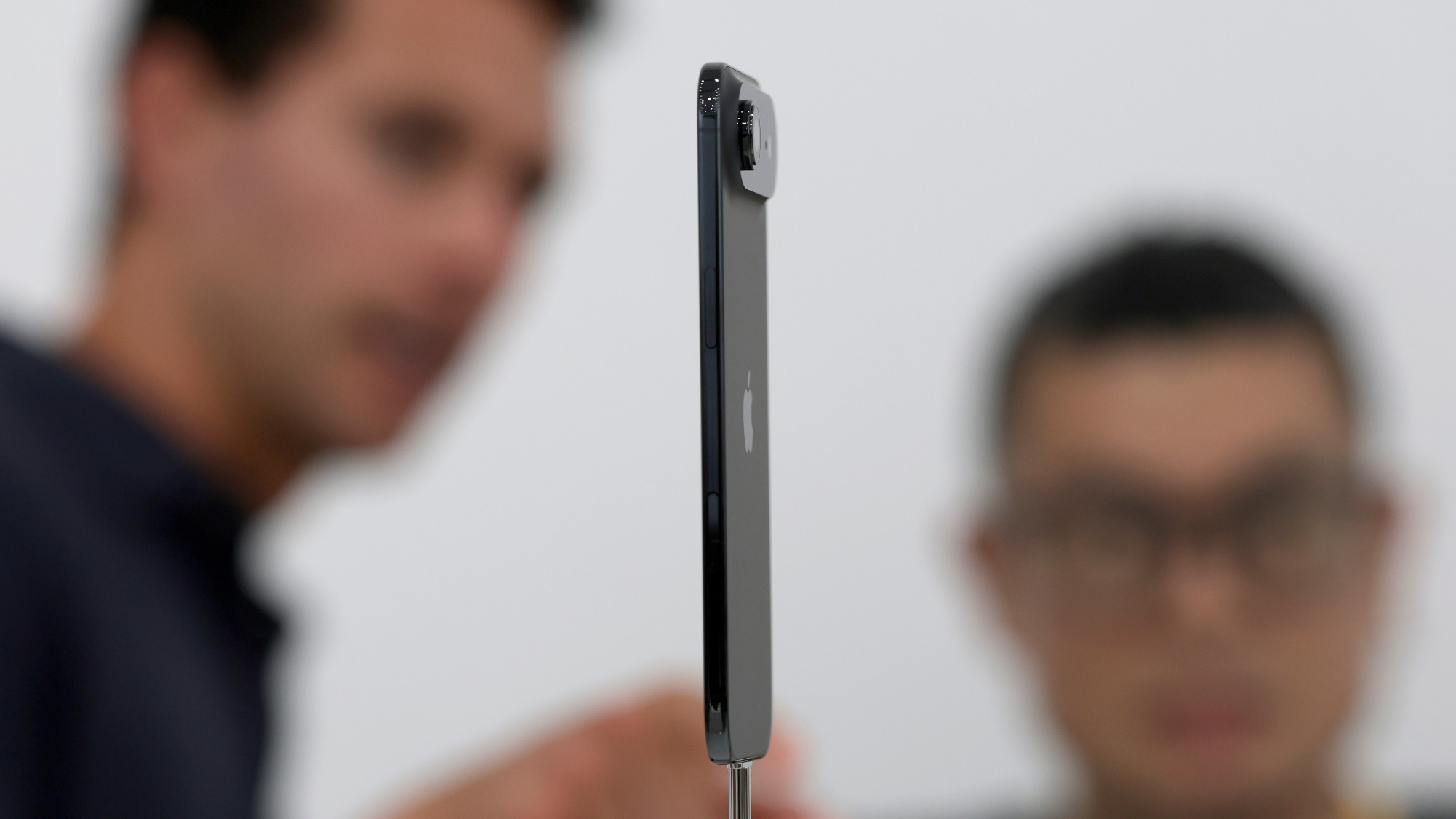 iPhone Air: Thinness comes at a high price
iPhone Air: Thinness comes at a high priceFeature Apple’s new iPhone is its thinnest yet but is it worth the higher price and weaker battery life?
-
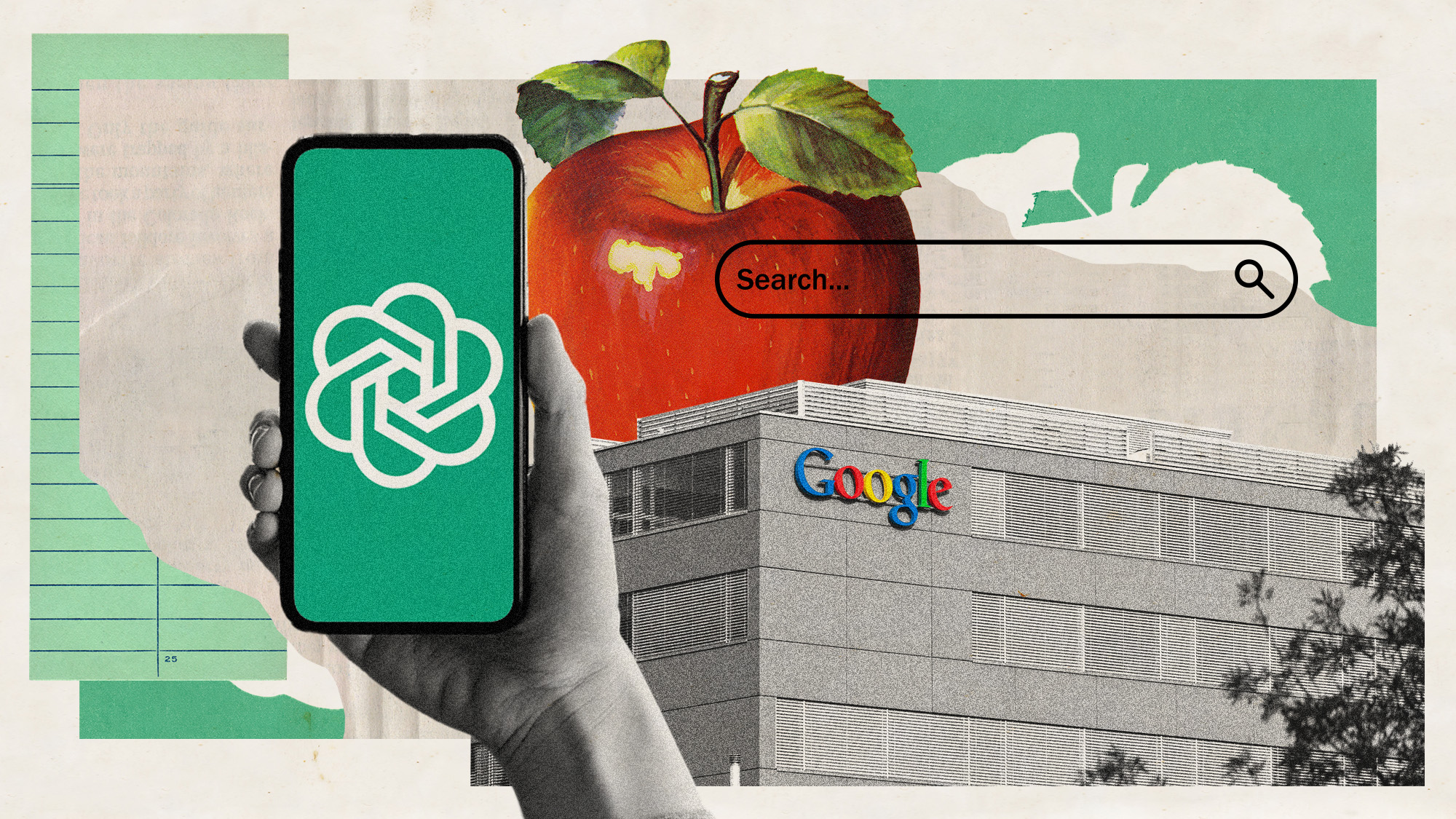 Is Apple breaking up with Google?
Is Apple breaking up with Google?Today's Big Question Google is the default search engine in the Safari browser. The emergence of artificial intelligence could change that.
-
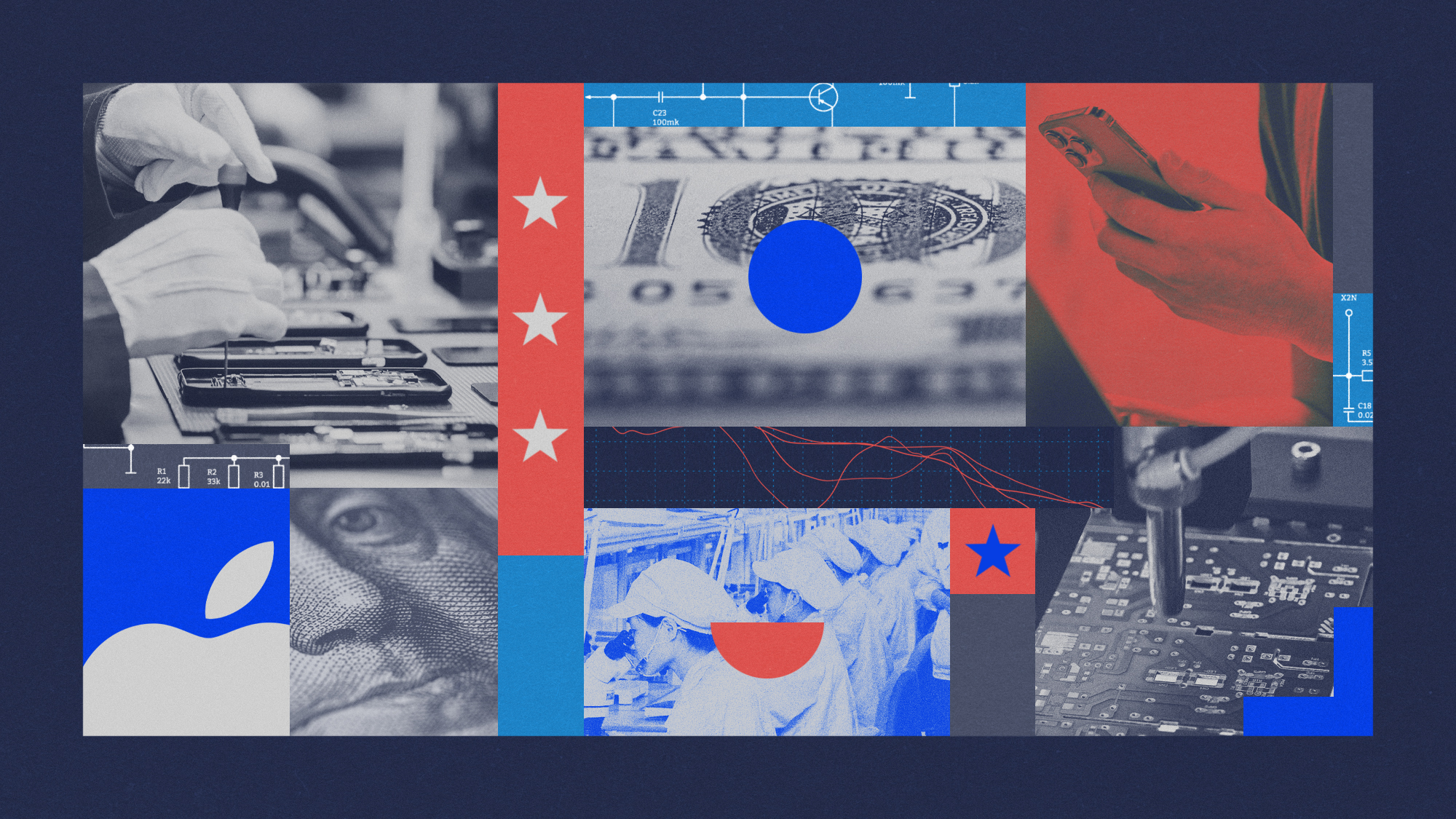 Why won't Apple make iPhones in America?
Why won't Apple make iPhones in America?Today's Big Question Trump offers a reprieve on tariffs, for now
-
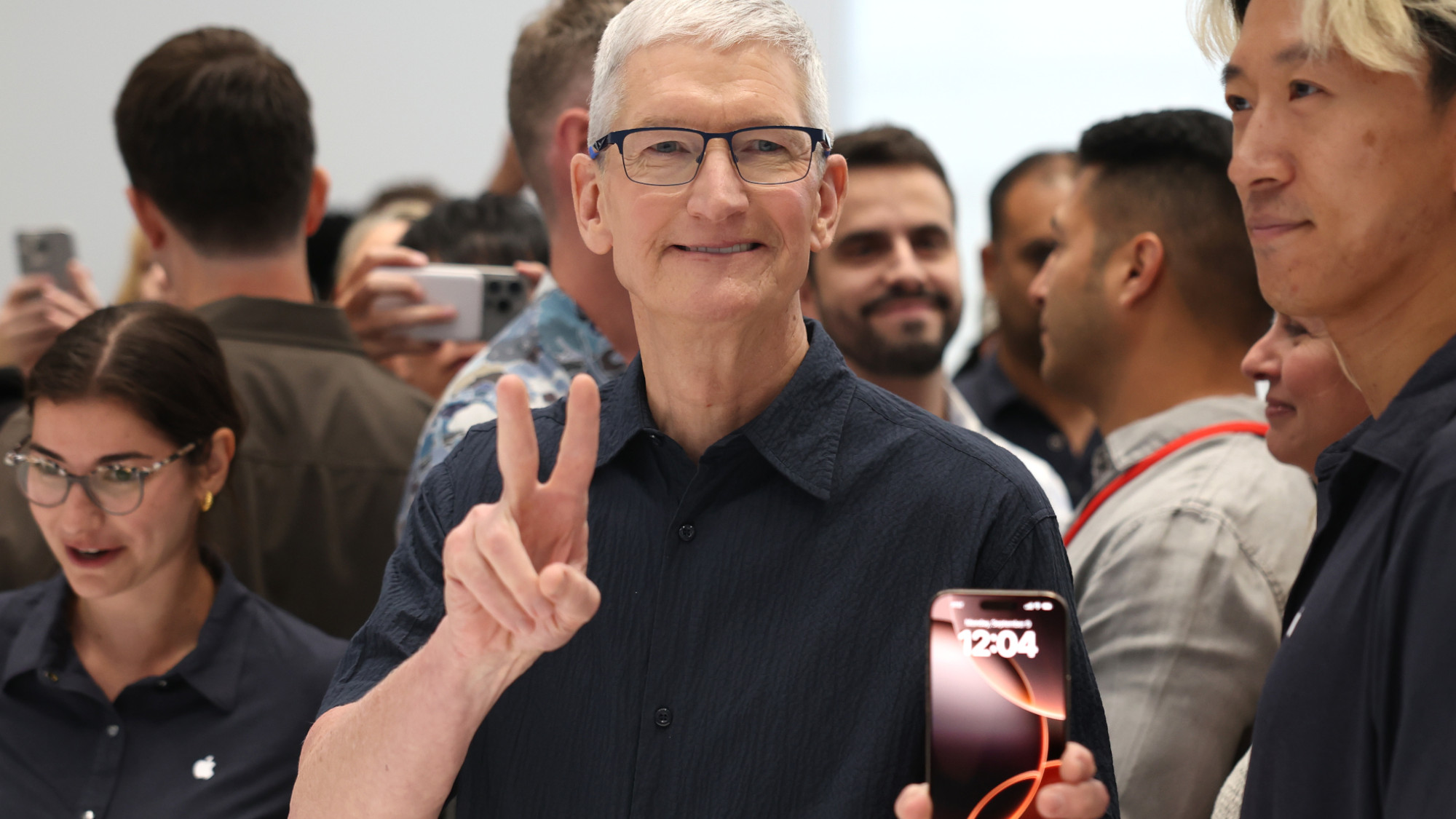 Not there yet: The frustrations of the pocket AI
Not there yet: The frustrations of the pocket AIFeature Apple rushes to roll out its ‘Apple Intelligence’ features but fails to deliver on promises
-
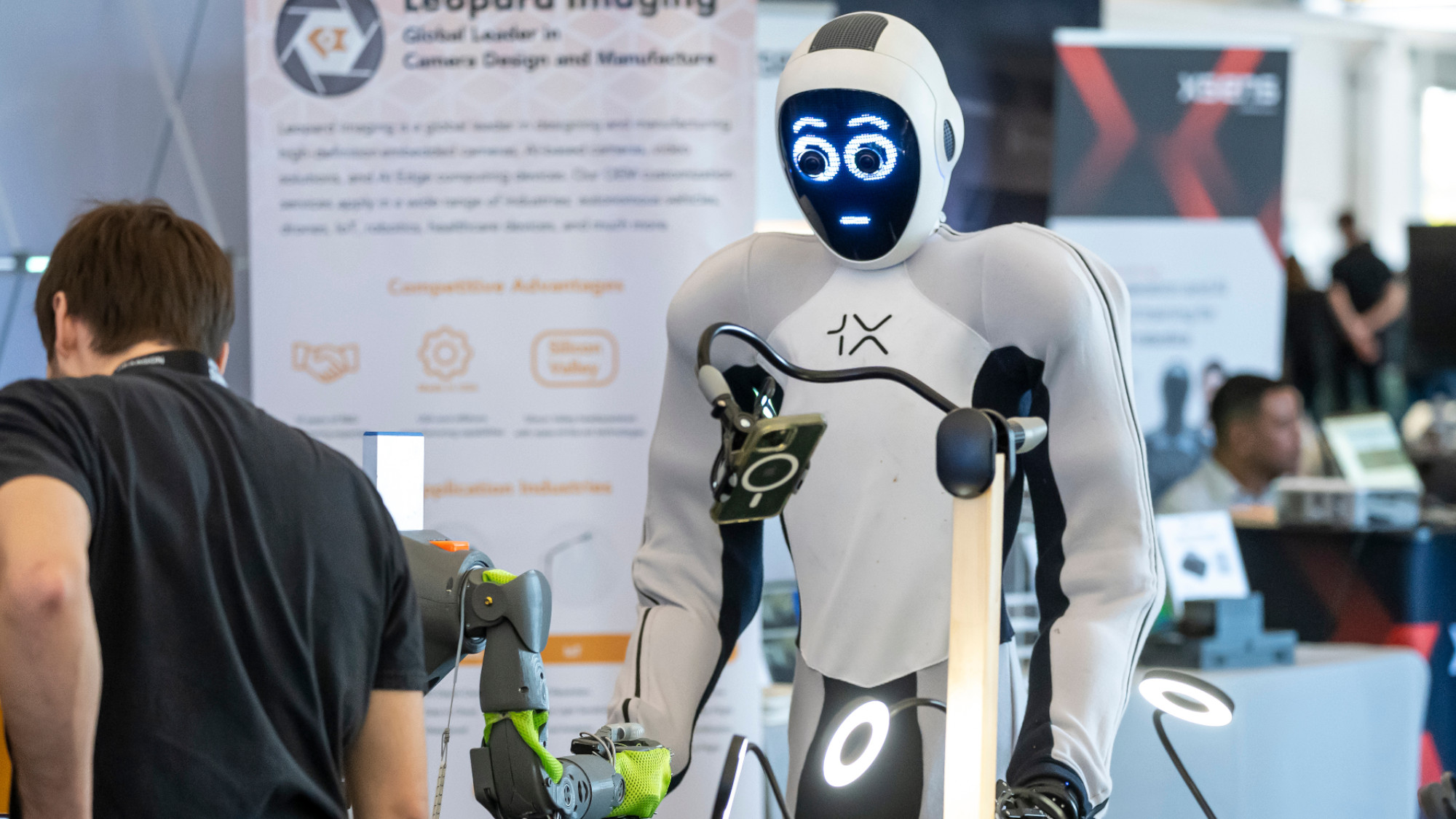 Space-age living: The race for robot servants
Space-age living: The race for robot servantsFeature Meta and Apple compete to bring humanoid robots to market
-
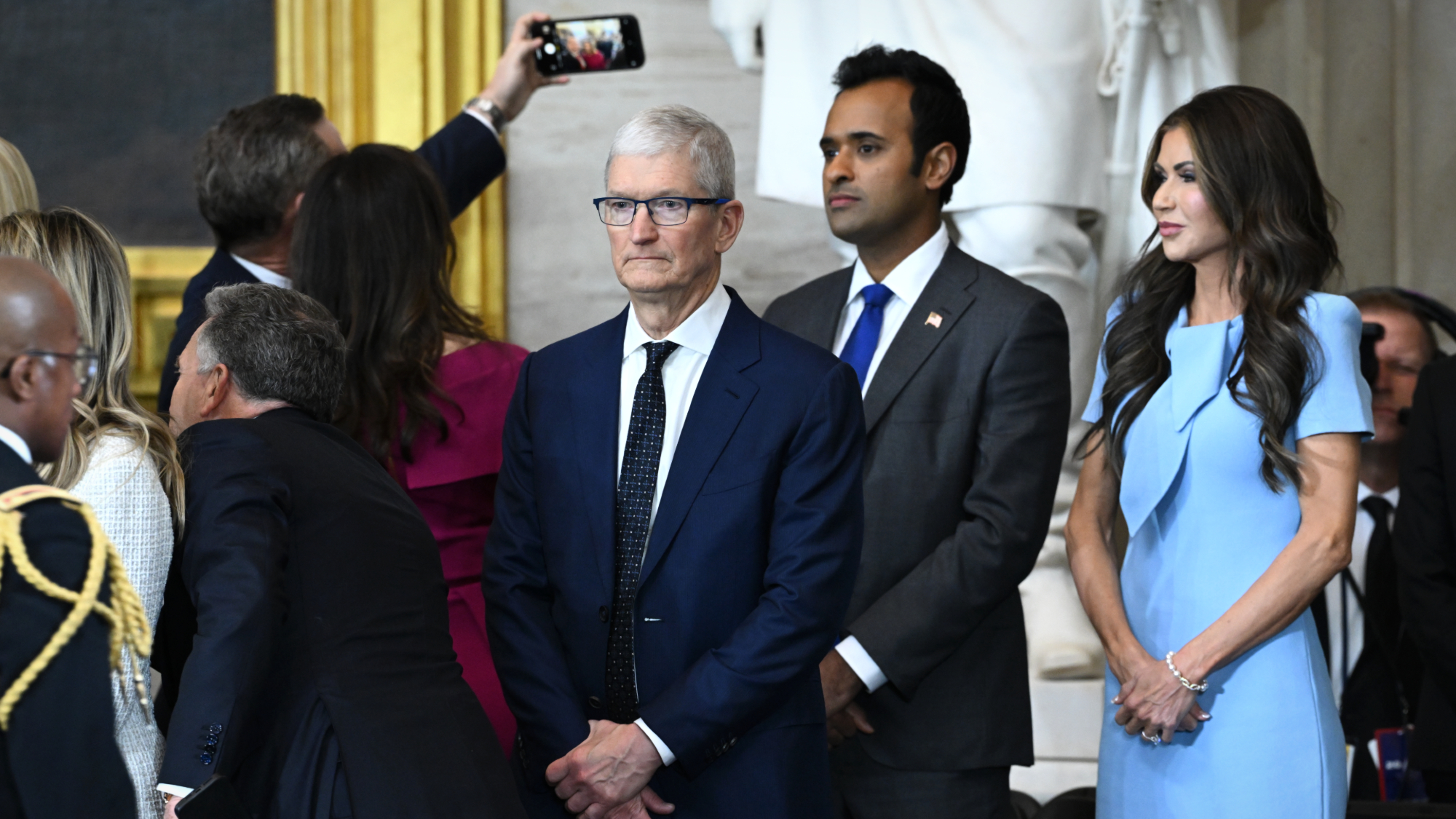 Apple pledges $500B in US spending over 4 years
Apple pledges $500B in US spending over 4 yearsSpeed Read This is a win for Trump, who has pushed to move manufacturing back to the US